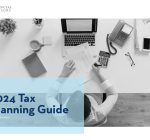Bone Pain In Chest | Safe4cure
Bone Pain In Chest | Safe4cure
A lot of patients visit the emergency room when they encounter terrible bone pain in chest. The majority of them find out they don’t have a cardiac condition. Of those, between 30 and 40 percent find that anxiousness was to blame.
In summary, there is a strong correlation between anxiety and chest pain, but you shouldn’t automatically attribute anxiety as the cause. When there’s a possibility that you have a heart issue or are experiencing a heart attack, you can’t take a chance by delaying medical care.
Find out how anxiety affects the chest and if there is a way to distinguish between anxiety and heart-related symptoms.
Anxiety defined
Your body’s natural response to a threat, whether it’s present or distant, is anxiety. Your brain immediately releases hormones that trigger the fight-or-flight response whenever you experience anxiety.
Your brain’s natural response energises your body so you can deal with the threat or quickly react and flee the circumstance, whether you’re delayed in traffic, anxious about a job interview, or confronting a threatening situation.
How anxiety causes chest pain
Your body experiences an adrenaline and cortisol rush when you’re anxious. Your heart rate and blood pressure rapidly increase as soon as these hormones are released. Many people consequently experience chest pain, perspiration, or difficulty breathing.
The quick surge of adrenaline might adhere to cardiac cells and restrict the arteries in your heart. Stress cardiomyopathy is a disorder that resembles a heart attack in every way, from symptoms to modifications in your heart’s electrical activity.
Stress cardiomyopathy can result in weak heart muscles, congestive heart failure, and irregular cardiac rhythms, but it normally resolves within a few days or weeks.
People with anxiety disorders like generalised anxiety disorder, panic disorder, and post-traumatic stress disorder don’t experience a return to normal in their cortisol and adrenaline levels. A panic attack, which can feel like a heart attack, can be brought on by persistently high hormone levels, which can also raise your risk of cardiovascular disease.
Symptoms of anxiety vs. cardiac chest pain
It’s hard, if not impossible, to tell the difference between anxiety-induced chest pain and the pain caused by an underlying heart condition. In addition to your chest pain, both can cause:
- Dizziness
- breathing difficulty
- Sweating
- heart flutters
- apprehension or a sense of being in control
Everyone experiences slightly different symptoms, whether they have anxiety or a heart problem. For this reason, the following two qualities aren’t written in stone. However, they’re generally true and may help you determine the cause of your chest pain:
Pain location
Heart attack chest pain frequently travels to your chin, shoulders, and arms in addition to spreading across your chest. In contrast, anxiety causes your chest ache to remain there.
Pain patterns
In contrast to an anxiety attack, which causes abrupt chest discomfort that gradually gets better, a heart attack causes slow-onset, progressive chest pain. Many people discover that chest pain brought on by anxiety disappears after 10 minutes. Other anxiety-related sensations, however, can last for up to an hour after the pain subsides.
Treatment for bone pain
Before determining the best course of action, the doctor must determine what is causing the bone discomfort. Following treatment, some types of bone pain will go away; however, other types of bone pain may be chronic and need ongoing care.
For instance, fractures could need the use of a cast or splint. The most common therapies for stress fractures are rest, immobilisation, ice, and elevation.
The doctor can treat osteoporosis-related bone pain using a mix of bone-building and pain-relieving medications, as well as lifestyle changes and fall prevention, to help prevent fractures. Acetaminophen, aspirin, and ibuprofen are a few over-the-counter painkillers that may offer momentary relief from bone pain.
In order to eliminate the illness-causing bacteria, the doctor may recommend antibiotics if the patient has a bone infection.
Read more about other pain – Upper Back Pain and Sciatica Pain





